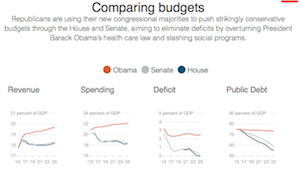Counting Sequatchie
Monday, April 4, 2011
SALARY INCREASEBelow are the minimum state-mandated salaries for specific elected offices in Sequatchie County at the former classification for a population of 12,000 or less and for the new population classification of 12,000 to 22,999.County Office: Old salary-New salaryExecutive: $60,350-$66,702Road supervisor: $57,477-$63,527Sheriff: $57,477-$63,527Trustee, clerks of court, county clerk and register of deeds, property assessor: $52,251-$57,751Total annual salaries combined: $488,810-$540,262Total annual combined increase: $51,542**Does not include the $4,950 minimum salary increase for the nonelected office of administrator of elections from $47,026 to $51,976 a year. The figures also do not reflect benefits.Source: University of Tennessee County Technical Assistance Service
DUNLAP, Tenn.-The latest U.S. census figures seem to confirm what Sequatchie County officials have been saying for the past decade: The 11,370 residents enumerated in 2000 likely was a miscount, an error that caused growth rates ever since to be wrong and cost Sequatchie countless amounts of money in grants, taxes and other funding.
Sequatchie's 2010 census count stands at 14,112, representing a 24 percent increase in the last decade and the greatest growth of any county in Southeast Tennessee.
Fredonia Mountain resident Kurt Wissehr and his wife, Helen, were among those who moved to Sequatchie County in the last 10 years.
"If we could do it all over again, we would do exactly the same thing," Wissehr said.
The 63-year-old retiree from Bucks County, Pa., said his home was finished in 2006 and he and his wife took up residence in Sequatchie in June 2008.
Like most of the new residents they've met, the couple appreciate the low cost of living and natural beauty, he said.
"It's a combination of all those things," Wissehr said.
And there are indications of more growth despite the lagging economy, according to incoming Sequatchie County Executive Claude Lewis, who begins his term today.monday
Lewis said much of the last decade's growth happened on Fredonia and Walden's Ridge and that spread is continuing.
Lewis, who served a combined 10 years as a county commissioner in two stints since the 1980s, said the recession probably slowed Sequatchie's growth but didn't halt it completely.
"I ran into a builder at the Ace Hardware the other day and he said he was working on three [new homes]," Lewis said.
BOOMER INFLUX
On Wednesday, Rip Ridge, owner of Trenton, Ga.-based Ridge Concrete Finishing, was doing work at a couple of new home sites on Fredonia Mountain.
Ridge said continued housing growth in Sequatchie helped keep his company working through the doldrums.
"It slowed down some last year, but the Fredonia work kept us working," he said.
BY THE NUMBERSThe population of Sequatchie County increased by almost 60 percent over the last 20 years and 24 percent in the last 10. Housing unit counts also show significant growth since 2000.Sequatchie County population1990: 8,8632000: 11,3702010: 14,112Housing growth2000: 4,9162010: 6,368Dunlap population1990: 3,7312000: 4,1732010: 4,815Housing growth2000: 1,7672010: 2,122Source: 2010 U.S. Census
On the west side of the Sequatchie Valley, Fredonia Mountain is home to several housing developments. The largest, 3,200-acre Fredonia Mountain Nature Resort, spans much of the brow overlooking Dunlap from the west.
Craig Smith is part of the group that owns the property, Land of Tennessee.
Smith said about 350 of 500 lots have been sold and about 100 homes are built or under construction.
He said quite a few out-of-towners have made homes on the mountaintop.
"They're mainly established baby boomers that are getting close to retirement," he said. "They're coming from Florida, from Wisconsin, California, all over the country. Thirty-six different states are represented up there on the mountain."
Smith said that, while the market has been relatively flat for the past couple of years, interest is trending upward.
A STEP UP
County leaders believe census takers in 2000 missed residents on a number of rural roads, based on a comparison of census locations and county voter rolls.
In 2007, just before the recession's start, county officials estimated the population at about 14,000.
Census estimates from 2009 pegged Sequatchie County's population at 13,915, but the 2010 head count surpassed that by almost 200, census records show.
In 2007, then-County Executive David B. Barker said the miscount shorted Sequatchie on state and federal grant amounts, gasoline tax and Hall income tax allocations and other population-based funding.
Mike Garland, executive director of the University of Tennessee County Technical Assistance Service, said Sequatchie is one of 19 Tennessee counties that gained enough population to move into a higher tier for funding.
The impact of the change on state and federal funding will vary depending on the formulas used for specific allocations, Garland said.
CHANGES ARRIVE
Garland said Tennessee's population growth mostly was on par with the rest of the nation, but there were some hot spots.
At 44 percent, Rutherford County had the most growth in Tennessee and increased by three population classifications, he said. Garland said industries such as Nissan that located in rural Middle Tennessee counties prompted much of that growth.
"The Eastern and Western divisions of the state have had much more modest growth," he said.
Dr. Kenneth Nix, who operates Sequatchie Valley Eye Care in Dunlap, said he's seen three decades of change as the county grew.
"When we first opened our office 30 years ago we didn't have any fast-food restaurants," Nix said. Now the eatery lineup includes Hardee's, McDonald's, Taco Bell, Sonic, Subway and a Huddle House.
More people mean more patients for Nix's office. The new people Nix sees are a mix of retirees, business owners and young families, he said.
"We have approximately 15 percent new patients every single week," he said. "They're from different parts of the country, but they have moved to Sequatchie County because our taxes are low."

